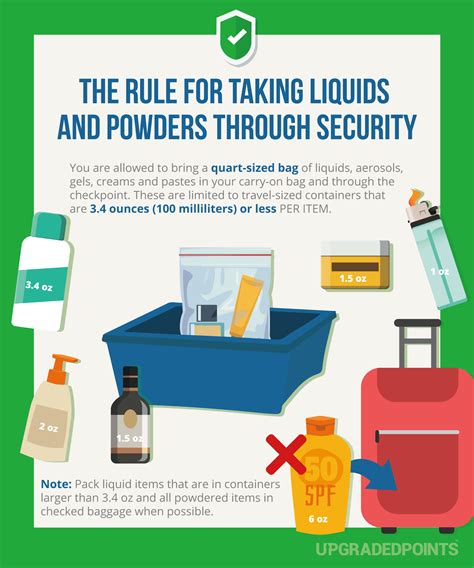
A traveler recounts falling victim to a common tourist scam in Greece involving inflated prices at a seaside restaurant, highlighting the importance of vigilance and price awareness for visitors.
One traveler’s idyllic Greek vacation was marred by a classic tourist trap, a pricey lunch at a seaside restaurant that left them feeling exploited and significantly lighter in the wallet. The experience, detailed in an essay, serves as a cautionary tale for anyone planning a trip to the popular Mediterranean destination. The incident underscores the necessity of diligent price checking and menu scrutiny before committing to any purchase, especially in tourist-heavy areas where inflated costs are a pervasive risk.
The traveler, eager to savor authentic Greek cuisine with a stunning ocean view, selected a restaurant based on its appealing ambiance rather than a careful assessment of its pricing. This decision proved costly. After enjoying a seemingly standard seafood meal, the final bill revealed exorbitant charges for items like grilled calamari and a simple Greek salad. The price points were significantly higher than what similar establishments in less tourist-centric locations would typically charge.
“We were so excited to be there and soak up the atmosphere that we didn’t pay close enough attention to the prices on the menu,” the traveler admitted. This oversight, fueled by vacation excitement and a desire to embrace the moment, created an exploitable situation. The restaurant, likely aware of its prime location and the steady influx of tourists, took advantage of the lapse in vigilance.
The specifics of the scam involved inflated prices for individual dishes, particularly seafood, a common tactic employed in tourist traps. The traveler mentioned that the cost of the grilled calamari was shockingly high, indicating a deliberate attempt to overcharge unsuspecting customers. The Greek salad, a staple and typically affordable item, was also priced at an inflated rate, contributing to the overall sense of being ripped off.
Adding insult to injury, the traveler noted a lack of transparency in the pricing structure. The menu, while potentially displaying some prices, may not have clearly indicated the full cost of each item, or might have omitted certain charges that were later added to the bill. This ambiguity made it difficult for the customers to accurately assess the potential expense before ordering, further facilitating the scam.
The experience serves as a stark reminder that even in seemingly reputable establishments, tourists are vulnerable to exploitation. The allure of a picturesque location and the desire to immerse oneself in the local culture can sometimes overshadow the need for practical considerations like price awareness. The traveler’s story emphasizes the importance of remaining vigilant and proactive in protecting oneself from potential scams.
Several preventative measures can be adopted to avoid similar situations. The most crucial is to thoroughly examine the menu and pricing before placing an order. Pay close attention to the cost of individual items, especially seafood, which is often subject to inflated prices. Compare prices to those of other restaurants in the area to gauge whether the establishment is charging a fair rate.
Another effective strategy is to ask for clarification on any ambiguous pricing or potential extra charges. Don’t hesitate to inquire about the cost of specific items or services before committing to them. A reputable establishment will be transparent and forthcoming with pricing information. If the staff is evasive or reluctant to provide clear answers, it’s a red flag.
Seeking recommendations from locals can also be invaluable. Locals are often aware of tourist traps and can steer visitors towards authentic and reasonably priced establishments. Their insights can help you discover hidden gems and avoid restaurants that are known for exploiting tourists. Online reviews can offer additional perspectives, although it’s important to consider the source and potential biases.
Furthermore, consider dining at restaurants located away from the main tourist areas. These establishments are often less likely to inflate prices, as they rely more on local clientele and repeat business. Venturing off the beaten path can lead to a more authentic culinary experience at a more reasonable cost.
The prevalence of tourist scams in Greece, and other popular destinations, highlights the need for increased awareness and education among travelers. By sharing personal experiences and providing practical tips, individuals can empower others to avoid becoming victims of similar schemes. The traveler’s account serves as a valuable lesson in the importance of vigilance, price awareness, and informed decision-making when navigating unfamiliar environments.
Beyond the immediate financial loss, the experience left the traveler with a lingering sense of disappointment and distrust. The feeling of being exploited can tarnish the overall impression of a vacation, even if the rest of the trip is enjoyable. This underscores the importance of addressing tourist scams and creating a more transparent and trustworthy environment for visitors.
Efforts to combat tourist scams should involve a multi-pronged approach. Local authorities can play a role by enforcing consumer protection laws and conducting regular inspections of businesses that cater to tourists. Increased transparency in pricing, standardized menus, and clear signage can also help to reduce the incidence of scams.
Ultimately, the responsibility for protecting oneself from tourist scams lies with the individual traveler. By adopting a proactive and informed approach, visitors can minimize their risk of exploitation and enjoy a more authentic and fulfilling travel experience. The traveler’s story serves as a powerful reminder that vigilance and awareness are essential tools for navigating the complexities of tourism and avoiding the pitfalls of tourist traps.
The incident also highlights the psychological factors that contribute to vulnerability. When on vacation, people are often more relaxed and less inclined to be critical or skeptical. This heightened state of openness can make them more susceptible to persuasive tactics and misleading information. The desire to embrace the moment and avoid confrontation can also lead to impulsive decisions and a reluctance to question prices or services.
Understanding these psychological factors can help travelers to develop coping mechanisms and maintain a more objective perspective. Reminding oneself to remain vigilant, even in a relaxed environment, can help to prevent costly mistakes. Setting a budget and sticking to it can also provide a framework for making informed decisions and avoiding impulsive spending.
Moreover, the story underscores the importance of cultural sensitivity and awareness. While it’s essential to be cautious and protect oneself from potential scams, it’s also crucial to avoid making generalizations or stereotyping entire populations. Tourist scams are not unique to Greece and can occur in any destination where there is a significant influx of visitors.
Maintaining a respectful and open-minded attitude can help to foster positive interactions with locals and enhance the overall travel experience. Engaging with local culture and customs can also provide valuable insights into the local economy and pricing norms. This knowledge can help travelers to make more informed decisions and avoid being taken advantage of.
In conclusion, the traveler’s experience serves as a valuable lesson in the importance of vigilance, price awareness, and informed decision-making when traveling to popular tourist destinations. By adopting a proactive approach and learning from the mistakes of others, visitors can minimize their risk of exploitation and enjoy a more authentic and fulfilling travel experience. The story underscores the need for increased awareness and education among travelers, as well as efforts to combat tourist scams and create a more transparent and trustworthy environment for visitors. While the allure of a vacation can be strong, maintaining a level of awareness and skepticism is crucial for protecting oneself from becoming a victim of a tourist trap. The key takeaway is that a little bit of research and careful attention can go a long way in ensuring a positive and scam-free travel experience.
The author’s experience also raises questions about the responsibility of online travel platforms and review sites in addressing the issue of tourist traps. While these platforms can provide valuable information and insights, they are not always effective in identifying and flagging establishments that engage in deceptive practices. The reliance on user-generated reviews can be problematic, as reviews can be biased, manipulated, or simply outdated.
Travel platforms could play a more proactive role by implementing stricter verification processes for businesses listed on their sites. This could involve verifying pricing information, ensuring transparency in billing practices, and conducting regular audits to identify potential red flags. They could also develop algorithms to detect suspicious patterns in user reviews, such as a sudden influx of positive reviews from unverified accounts.
Furthermore, travel platforms could partner with local authorities and consumer protection agencies to share information and coordinate efforts to combat tourist scams. By working together, these entities can create a more comprehensive and effective system for protecting travelers from exploitation.
The story also highlights the importance of financial literacy and responsible spending habits when traveling. Many tourist scams exploit the fact that people are often less price-sensitive when on vacation. The desire to indulge in local experiences and treat oneself to special meals can lead to impulsive spending and a willingness to overlook inflated prices.
Developing a budget and sticking to it can help to prevent overspending and reduce the risk of falling victim to tourist scams. Researching the average cost of goods and services in the destination beforehand can provide a benchmark for evaluating prices and identifying potential red flags. Using credit cards with fraud protection can also provide an added layer of security and recourse in case of a scam.
In addition to financial literacy, emotional intelligence plays a crucial role in avoiding tourist traps. Recognizing the psychological tactics that scammers use, such as creating a sense of urgency or appealing to emotions, can help travelers to resist manipulation and make more rational decisions. Being assertive and confident in one’s interactions with vendors and service providers can also deter potential scammers.
The traveler’s experience also serves as a reminder of the importance of documenting and reporting scams. Reporting incidents to local authorities and consumer protection agencies can help to raise awareness of the problem and hold perpetrators accountable. Sharing experiences on online travel forums and review sites can also help to warn other travelers and prevent them from becoming victims of similar schemes.
However, it’s important to approach reporting with caution and avoid making unsubstantiated accusations. Providing accurate and detailed information, including receipts, photos, and witness accounts, can help to strengthen the case and increase the likelihood of a successful resolution.
Ultimately, the fight against tourist scams requires a collective effort from travelers, businesses, travel platforms, and local authorities. By working together to raise awareness, promote transparency, and enforce consumer protection laws, we can create a more ethical and trustworthy environment for tourism and ensure that travelers can enjoy their experiences without fear of exploitation. The author’s experience, while unfortunate, provides valuable insights and lessons that can help others navigate the complexities of travel and avoid falling victim to similar scams. It underscores the importance of vigilance, price awareness, financial literacy, and emotional intelligence in protecting oneself from exploitation and ensuring a positive and fulfilling travel experience.
The discussion should also involve the ethics of tourism and the responsibility of businesses to treat tourists fairly and respectfully. While it’s understandable that businesses seek to maximize profits, there is a fine line between legitimate pricing and blatant exploitation. Businesses that engage in tourist scams not only harm individual travelers but also damage the reputation of the destination as a whole.
Promoting ethical business practices and fostering a culture of transparency and accountability is essential for creating a sustainable and thriving tourism industry. This can involve implementing codes of conduct for businesses, providing training on ethical pricing and customer service, and establishing mechanisms for resolving disputes between businesses and travelers.
Moreover, the discussion should address the role of cultural differences in perceptions of pricing and value. What may be considered a fair price in one culture may be seen as exorbitant in another. Understanding these cultural nuances can help travelers to avoid misunderstandings and make more informed decisions.
However, it’s important to distinguish between genuine cultural differences and deliberate attempts to exploit tourists. While it’s essential to be respectful of local customs and traditions, it’s also crucial to be aware of potential scams and protect oneself from exploitation.
In conclusion, the traveler’s experience serves as a valuable case study for exploring the complexities of tourist scams and the factors that contribute to vulnerability. By examining the psychological, economic, and cultural dimensions of the issue, we can gain a deeper understanding of the challenges that travelers face and develop more effective strategies for preventing exploitation. The story underscores the importance of vigilance, price awareness, financial literacy, emotional intelligence, and ethical business practices in creating a more sustainable and trustworthy tourism industry.
Frequently Asked Questions (FAQ)
-
What was the specific scam the traveler experienced in Greece? The traveler was overcharged at a seaside restaurant for a meal, particularly for items like grilled calamari and a Greek salad. The prices were significantly higher than what similar establishments in less touristy areas would typically charge, indicating a deliberate attempt to exploit tourists.
-
What are some concrete steps travelers can take to avoid falling victim to similar scams? Travelers should thoroughly examine the menu and pricing before ordering, comparing prices to other restaurants in the area. They should also ask for clarification on any ambiguous pricing or potential extra charges. Seeking recommendations from locals and dining at restaurants away from the main tourist areas are also effective strategies.
-
Why are tourists often targeted by scams in popular destinations? Tourists are often targeted because they are unfamiliar with local pricing norms and customs, making them more susceptible to inflated prices and deceptive practices. The excitement of being on vacation can also lead to a lapse in vigilance, creating an exploitable situation. Scammers often operate in tourist-heavy areas, knowing there is a constant influx of new, unsuspecting customers.
-
What role can online travel platforms and review sites play in preventing tourist scams? Online travel platforms can implement stricter verification processes for businesses listed on their sites, verifying pricing information and ensuring transparency in billing practices. They can also develop algorithms to detect suspicious patterns in user reviews and partner with local authorities to share information and coordinate efforts to combat scams. They could provide price ranges for typical dishes. They should also implement a flagging system that allows users to report suspected unethical pricing.
-
What is the psychological impact of being scammed while on vacation, and how can travelers cope with it? Being scammed can leave travelers with a lingering sense of disappointment, distrust, and violation, potentially tarnishing the overall vacation experience. To cope, travelers should acknowledge their feelings, focus on the positive aspects of their trip, and view the experience as a learning opportunity. Reporting the scam to authorities and sharing their experience with others can also help to regain a sense of control and prevent future incidents. Practicing mindfulness and self-compassion can also assist in processing the emotional impact and moving forward.
![Bob’s Red Mill’s New [Product] Is a Family Favorite: Gone in Days!](https://infoduniaku.com/wp-content/uploads/2025/06/unnamed-file-279-150x150.jpg)








